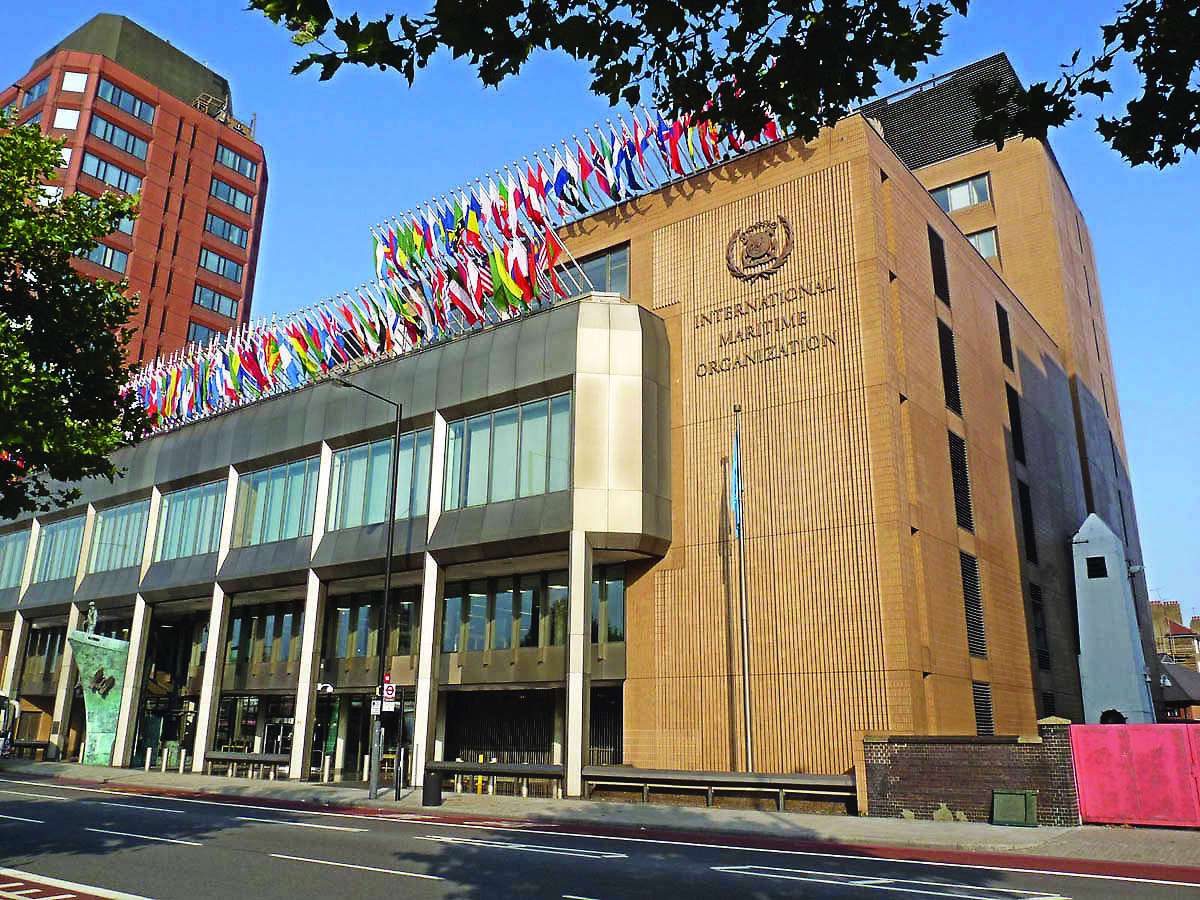The Week in Alternative Fuels
Here's a summary of what to expect from the IMO's 80th Marine Environment Protection Committee (MEPC) meeting as the countdown begins.

PHOTO: Street view of International Maritime Organisation building in Lambeth, London, England. Twitter of @IMOHQ
The maritime industry awaits the IMO's much anticipated 80th MEPC meeting that will begin on 3 July and last for a week. IMO member states are expected to adopt a revised greenhouse gas (GHG) emissions strategy, five years after they adopted an initial strategy of halving emissions by 2050.
"The revision of the initial GHG Strategy will have significant implications for the industry at large, sending critical market signals on what path international shipping will take as it seeks to decarbonize and address its climate emissions," the Global Maritime Forum and UCL Energy Institute say.
Western IMO member states such as the US, UK, Canada and EU countries have set a clear vision for net zero emissions by 2050. However, some nations including India and China starkly oppose a net-zero target for 2050. Even Japan, a long-standing proponent of a 2050 goal, now casts doubt over whether it is attainable. IMO members states are also divided over intermediate GHG emission targets for 2030 and 2040.
Compared with 2008 levels, Japan has suggested a 50% reduction in GHG emissions by 2040, while Fiji, the Marshall Islands, Solomon Islands and Vanuatu have proposed a 96% reduction.
And while the EU bloc recommends a 29% reduction in GHG emissions by 2030, the US has proposed a 37% reduction.
With such contrasting proposals, shipping industry experts believe the IMO is up against a massive mountain to climb to reach new agreements on GHG reduction targets for 2030, 2040 and 2050.
There is also discord over how to calculate GHG emissions. Most IMO members favour calculating emissions on a well-to-wake (WtW) basis. "...true sustainability means taking full WtW life cycle emissions into account," the International Bunker Industry Association (IBIA) said in one of its proposals to the IMO. More regulatory certainty over a WtW approach at the IMO will send stronger demand signals to fuel suppliers, IBIA argues.
However, some nations including India are leaning towards a more limited tank-to-wake (TtW) approach. TtW only accounts for emissions from the fuel tank of a vessel to its combustion. To put this into context, a TtW approach would mean that LNG and bio-LNG (both methane) would have similar GHG emissions even though bio-LNG (renewable) can have much lower upstream emissions than LNG (fossil).
India also argued for an "inclusive distribution" of future income generated from carbon pricing mechanisms. Meanwhile, South Korea proposed offering incentives and rewards to first-movers in alternative marine fuel production and adding a "polluter-pays" clause to carbon levies. Both India and South Korea want a portion of the funds generated from carbon levies to be earmarked to helping developing nations to build alternative fuel infrastructure.
Despite different views on emission reduction targets and calculation approaches, there is generally a strong push in favour of two mid-term measures – a global GHG Fuel Standard and a carbon levy. Several IMO member states and organisations like the Getting to Zero Coalition and the International Chamber of Shipping (ICS) have urged the shipping regulator to tax maritime emissions and use the funds to develop alternative fuel infrastructure. They also back an interim target of reducing the GHG intensity of fuels consumed onboard ships by 5% by 2030 through implementing a GHG Fuel Standard.
The World Bank has outlined a strategy for the IMO can allocate carbon revenues. Funds should generally be funnelled to ramp up zero-carbon fuel production capacity and bunker infrastructure. And it agrees with India and others that a chunk of it should be earmarked to support developing countries in their energy transitions.
MEPC 80 is only a week away. In the meantime, the IMO's Intersessional Working Group on Reduction of GHG from Ships will convene for its 15th session next week. Member states and maritime organisations have submitted a whole raft of proposals to the intersessional working group, which has been described as a key facilitator or decision-making at MEPC 80 by the International Association of Ports and Harbors.
By Konica Bhatt
To help prepare you for a two-week shipping regulation marathon, we have explored what various member states and maritime interest organisations have proposed to the IMO in recent months:
US implores IMO to adopt net-zero emissions by 2050
EU urges IMO to adopt net-zero by 2050
Brazil makes case for well-to-wake approach
IMO members lack consensus on key GHG targets, industry experts say
IBIA warns that low-carbon fuel availability hinges on WtW approach
France to push for carbon levy – FT
Increased investment needed to boost shore power supply
Support for carbon tax rises; World Bank outlines spending priorities
India, South Korea propose directing GHG proceeds to promote alternative fuels
Island nations call for mid-term carbon cutting measures
Working group to consider global GHG Fuel Standard next week
African nations endorse carbon pricing and GHG Fuel Standard
MMMCZCS supports net-zero by 2050 with incremental targets
Clean Shipping Coalition backs IPCC's 2030 goal of halving CO2 emissions
Stronger IMO support for net-zero by 2050 emissions target – UMAS
IMO members call for intermediate 2040 emission reduction target – IBIA
G7 nations pledge 2050 target for net-zero shipping emissions
Green fuel availability crucial to meet decarbonisation targets - ICS
Seafarer training vital to safe alternative fuels transition – DNV






